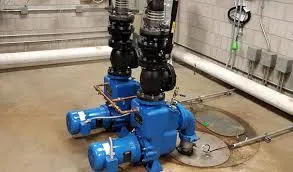English
- Afrikaans
- Albanian
- Amharic
- Arabic
- Armenian
- Azerbaijani
- Basque
- Belarusian
- Bengali
- Bosnian
- Bulgarian
- Catalan
- Cebuano
- Corsican
- Croatian
- Czech
- Danish
- Dutch
- English
- Esperanto
- Estonian
- Finnish
- French
- Frisian
- Galician
- Georgian
- German
- Greek
- Gujarati
- Haitian Creole
- hausa
- hawaiian
- Hebrew
- Hindi
- Miao
- Hungarian
- Icelandic
- igbo
- Indonesian
- irish
- Italian
- Japanese
- Javanese
- Kannada
- kazakh
- Khmer
- Rwandese
- Korean
- Kurdish
- Kyrgyz
- Lao
- Latin
- Latvian
- Lithuanian
- Luxembourgish
- Macedonian
- Malgashi
- Malay
- Malayalam
- Maltese
- Maori
- Marathi
- Mongolian
- Myanmar
- Nepali
- Norwegian
- Norwegian
- Occitan
- Pashto
- Persian
- Polish
- Portuguese
- Punjabi
- Romanian
- Russian
- Samoan
- Scottish Gaelic
- Serbian
- Sesotho
- Shona
- Sindhi
- Sinhala
- Slovak
- Slovenian
- Somali
- Spanish
- Sundanese
- Swahili
- Swedish
- Tagalog
- Tajik
- Tamil
- Tatar
- Telugu
- Thai
- Turkish
- Turkmen
- Ukrainian
- Urdu
- Uighur
- Uzbek
- Vietnamese
- Welsh
- Bantu
- Yiddish
- Yoruba
- Zulu
Telephone: +86 13120555503
Email: frank@cypump.com
Jul . 27, 2024 11:49 Back to list
Understanding the Efficiency and Applications of Slurry Pumps in Various Industries and Environments
Understanding Slurry Pumps A Comprehensive Overview
Slurry pumps play a critical role in various industrial processes by transporting mixtures of liquid and solid materials known as slurries. These pumps are specifically designed to handle challenging pumping tasks that involve abrasive, viscous, and corrosive substances commonly found in mining, mineral processing, construction, and waste management industries.
What is a Slurry Pump?
A slurry pump is a type of centrifugal pump that is optimized to move slurries—thick liquids containing solid particles. Unlike standard pumps, which may struggle with the viscous and abrasive nature of slurries, slurry pumps are engineered with robust components to ensure durability and functionality. The construction of these pumps typically includes heavier materials and reinforced impellers that can withstand the wear and tear that results from handling solid particles.
Key Features of Slurry Pumps
1. Construction Materials Slurry pumps are often made from high-chrome iron or rubber linings to resist corrosion and erosion. The choice of materials is crucial as it determines the pump's lifespan and efficiency. The specific materials used can vary depending on the type of slurry being pumped.
2. Design The design of a slurry pump includes a wide inlet and a strong impeller to facilitate the smooth flow of slurries. The impeller is typically designed to generate high flow rates while also minimizing wear. Many slurry pumps also feature a suction casing designed to enable efficient intake of slurries.
3. Seal Types Proper sealing is critical in slurry pumps as slurries can leak and cause environmental issues. Various sealing options, such as mechanical seals or packing seals, are employed depending on the operational requirements and the nature of the slurry.
4. Variable Speed Options Some modern slurry pumps come equipped with variable speed drives. This feature allows operators to adjust the pump speed according to the viscosity of the slurry, optimizing performance and energy efficiency.
Applications of Slurry Pumps
slurry pump pdf

Slurry pumps are widely used across several industries
- Mining In mining operations, slurry pumps are utilized to transport tailings, slurries of ore and water that remain after the extraction process. They help in managing waste material and recycling water within the mining operation.
- Mineral Processing These pumps are crucial in mineral processing for transporting slurries containing minerals for separation and extraction processes.
- Construction In the construction sector, slurry pumps are essential for moving concrete slurries, sand, and other mixtures used in various building processes.
- Waste Management In wastewater treatment facilities, slurry pumps help in managing sludge and other semi-solid materials, ensuring efficient processing and disposal.
Challenges and Considerations
While slurry pumps are indispensable, they also come with their challenges. The abrasive nature of slurries can lead to frequent wear and tear, necessitating regular maintenance and part replacement. Additionally, selecting the appropriate type and size of slurry pump is crucial for efficient operation and can significantly impact operational costs.
Conclusion
In summary, slurry pumps are vital components in various industrial processes dealing with slurries. Their specialized design and durable materials enable effective management of abrasive and viscous substances. As industries continue to evolve, the technology surrounding slurry pumps is also advancing, leading to innovations that enhance their efficiency, durability, and overall performance. Understanding the fundamental characteristics and applications of slurry pumps is essential for anyone involved in sectors that utilize these critical machines.
-
ISG Series Vertical Pipeline Pump - Chi Yuan Pumps Co., LTD.|High Efficiency, Energy Conservation, Low Noise
NewsJul.29,2025
-
ISG Series Vertical Pipeline Pump-Chi Yuan Pumps Co., LTD.|High Efficiency&Energy-Saving
NewsJul.29,2025
-
ISG Series Vertical Pipeline Pump - Chi Yuan Pumps Co., LTD. | High Efficiency, Energy-Saving
NewsJul.29,2025
-
ISG Series Pipeline Pump - Chi Yuan Pumps | High Efficiency, Low Noise
NewsJul.29,2025
-
High-Efficiency Vertical Slurry Pumps for Mining & Industry Solutions
NewsJul.29,2025
-
High-Efficiency Pipeline Pump Solutions for Every Pipeline Pump Station
NewsJul.29,2025










